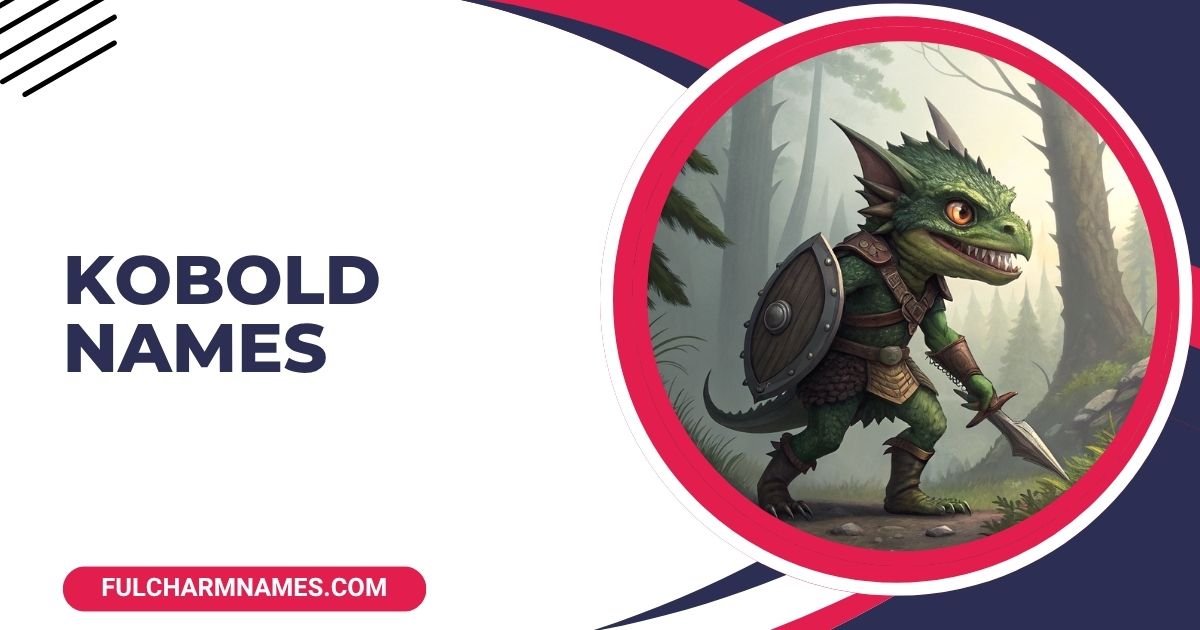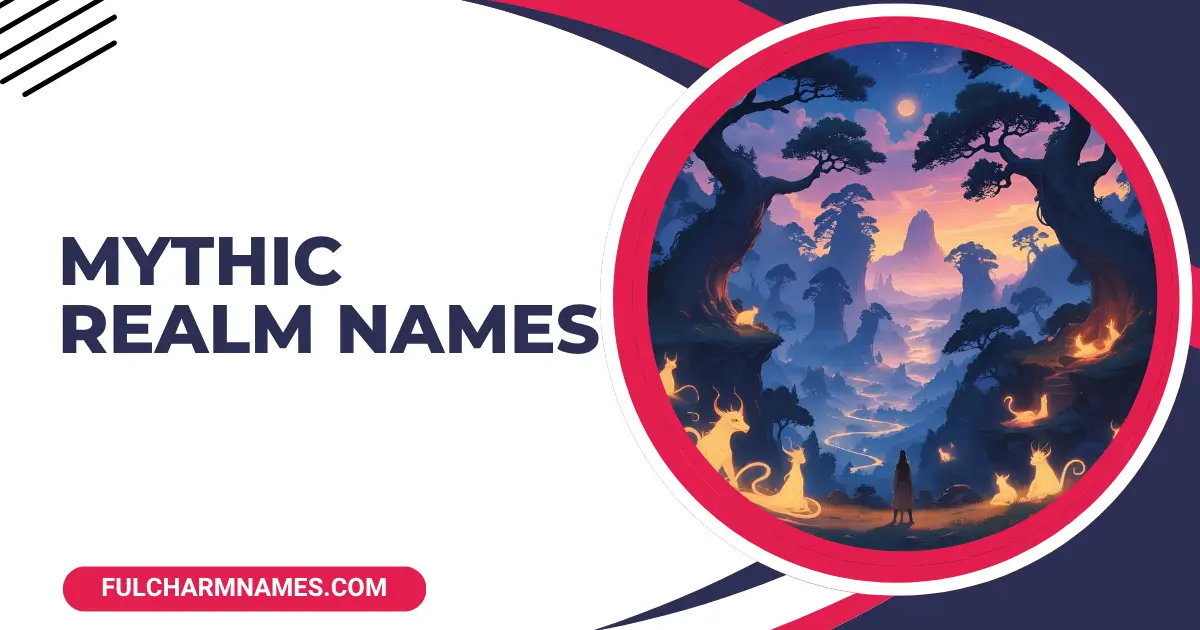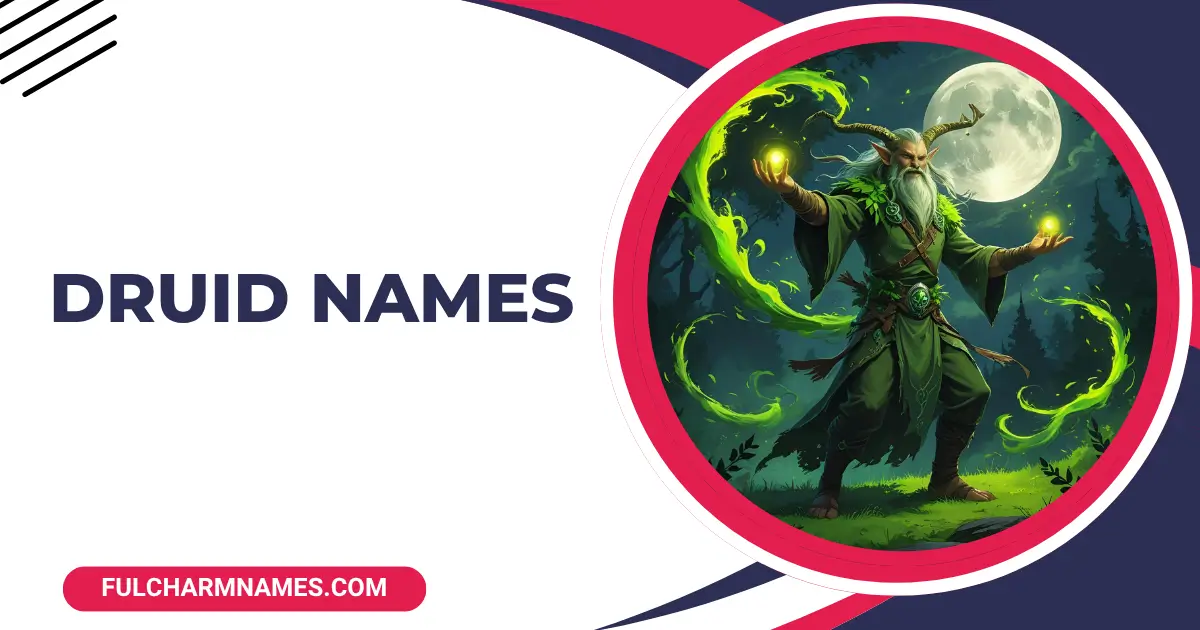Khajiit Names That Reflect Honor Pride And Fierce Identity
Khajiit names are shaped by a combination of cultural traditions, life roles, and the lunar phase present at birth. Unlike other races in Tamriel, whose names often follow family lines or regional customs, Khajiit names are influenced by furstock—the form each Khajiit is born into based on the moons Jone and Jode.
This physical form often guides a Khajiit’s path in life, and their name reflects how they are seen within their community.
Each part of a Khajiit’s name carries purpose. Prefixes can indicate age, role, or reputation, while the core of the name remains personal and unique. As individuals grow, their names may shift to reflect changing status or behavior.
This naming tradition not only reflects personal traits but also serves as a way to communicate one’s place in society through language and form.
Khajiit Names With Meanings
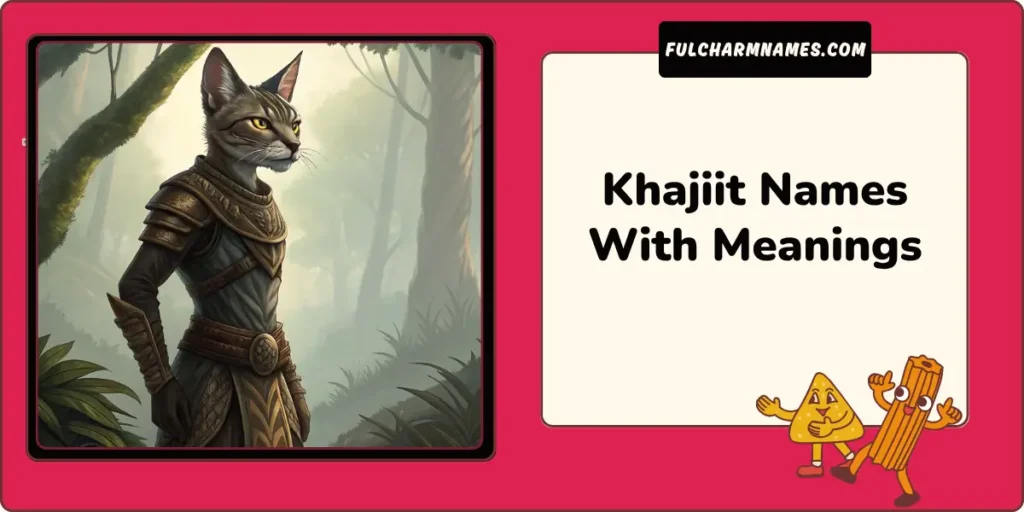
Khajiit naming conventions carry meaning far beyond what’s spoken; a prefix like Ja’ or S’ can hint at age or standing, while names such as M’aiq or Zahari reflect traits, beliefs, or sometimes humor.
From personal use in roleplay settings, I’ve learned how much a single name can communicate—whether it’s strength, wit, or grace.
These names often serve as a quiet nod to the character’s history and how others view them. Every syllable plays a role in shaping identity.
| Khajiit Name | Meaning / Description |
| Ja’Zar | Young male, eager or bold |
| S’Nari | Young female, quiet strength |
| Do’Rasha | Adult male warrior, fierce path |
| Daro’Vashi | Female thief, clever and swift |
| M’aiq | Trickster or storyteller |
| Ri’Sadar | Elder or leader, respected guide |
| J’zhar | Youthful rogue or traveler |
| Kha’zirr | Calm one, peaceful nature |
| Sahni-jo | Graceful scholar or healer |
| Dro’Khan | Wise old male, advisor |
| Zan’ji | Curious thinker or mage |
| Dar’Zira | Skilled thief or silent mover |
| Rha’ziir | Fearless and fast |
| Ka’ashi | Sharp wit, playful |
| Ra’virr | Merchant or street-smart traveler |
| Sha’kar | Brave heart, unshaken |
| Ji’nasha | Observant and loyal |
| S’jara | Young female, spirited and fast |
| Do’vahn | Warrior of purpose |
| Ma’dran | Wandering speaker, trader |
| Lirr’ashi | Quick thinker or seer |
| Ri’vashi | Spiritual elder or temple leader |
| Kharjo | Guard or caravan protector |
| Ta’rashi | Sly and charismatic |
| S’rahni | Gentle but firm-hearted young female |
| Do’renji | Veteran fighter or tactician |
| S’zirah | Joyful spirit, fast learner |
| Ha’zari | Quiet strength, resilient |
| Mo’drin | Middle-aged wanderer |
| Ji’rasha | Fast-tongued speaker |
| Tajirr | Hunter or wilderness guide |
| La’nashi | Calm, graceful mind |
| S’khari | Playful and quick-witted young |
| Dar’jo | Small but skilled thief |
| Do’nari | Disciplined protector or guard |
| Sa’vahn | Balanced spirit, thoughtful |
| Mi’rashi | Friendly traveler or cook |
| Dro’vani | Story keeper or wisdom bearer |
| Nashirr | Cold-eyed tactician |
| Va’khan | Mountain-born or strong walker |
| Ri’jo | Esteemed elder, kind and calm |
| Ja’mira | Bright-minded young girl |
| Zi’ravi | Quiet observer or watcher |
| Ha’rani | Wind-like movement, light step |
| Bo’rasha | Blunt but honest male |
| Lo’jari | Night-dweller, alert thinker |
| Ra’khari | Skilled merchant, clever tongue |
| S’nava | Bright, dreamy female youth |
| Ta’nirr | Agile thinker and performer |
| Fa’zhar | Grinning one, trickster smile |
Check Out This Comprehensive List Of Gritty Cowboy Names Perfect For Your Next Project
Best Khajiit Names
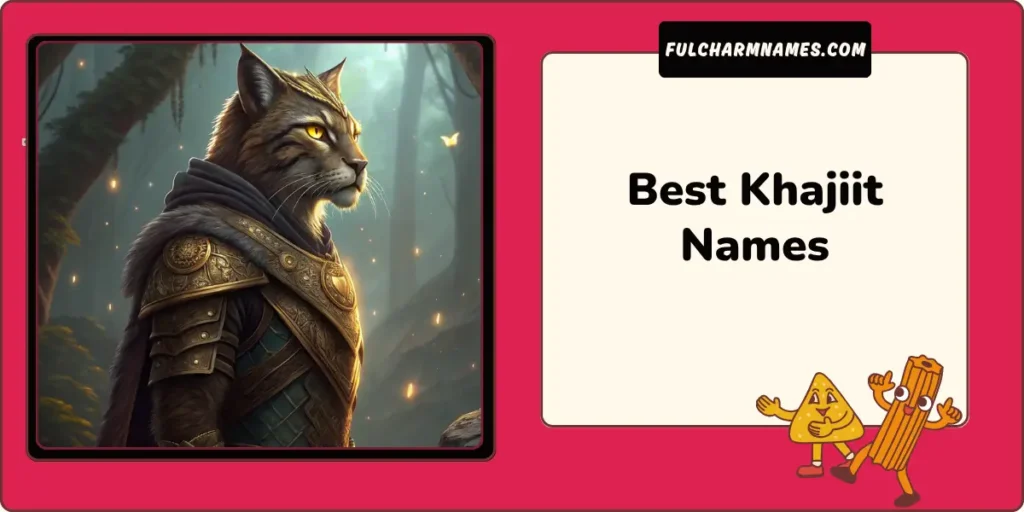
Some of the best Khajiit names I’ve come across in my own Elder Scrolls playthroughs carry a natural rhythm and weight—names like Do’Rasha, Ri’Jahirr, or S’Karah speak of strength, wisdom, or youth.
What makes these names stand out isn’t just the sound but the cultural depth behind them—names shaped by furstock, profession, or social position.
I’ve always noticed that the most memorable ones feel purposeful, not randomly created. They echo the Khajiit’s journey, making every introduction feel like part of a much larger story.
Use These Mythic Realm Names To Bring Your World To Life
Male Khajiit Names
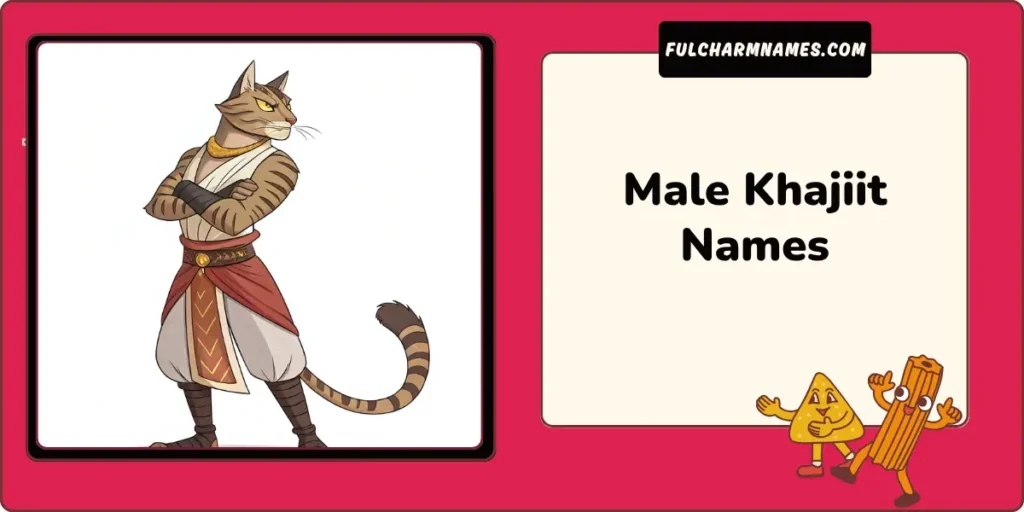
I’ve often found male Khajiit names like Do’Khajirr, J’zhar, and Ra’zirr create a strong presence, especially in roleplay-heavy sessions or lore-driven narratives.
These names frequently convey maturity, fighting skill, or guidance, depending on the prefix.
Choosing the right one depends on furstock and the role—whether a warrior, trader, or monk. Their sharp, confident tones make them feel grounded in Elsweyr’s traditions.
For Roleplaying Adventures, Use These Mischievous Goblin Names
Female Khajiit Names

Some of the most graceful and memorable names in my gameplay have been female Khajiit names like Daro’Vashi, S’nara, and Khamira.
There’s often a softer rhythm in the phonetics, yet they still carry authority or mystery.
These names reflect roles from stealth to scholarship, and even leadership. They’re often versatile, working across various furstocks and backgrounds, which makes them rewarding to write and play.
Read Through The Ultimate Collection Of Cursed Catchy Warlock Names Now
Cool Khajiit Names

There’s something uniquely stylish about cool Khajiit names—they often carry an edge or charm that feels immediately fitting in a fantasy setting. Names like Zah’ariin, Marozii, or T’rahnji sound both fierce and clever, making them ideal for standout characters.
I’ve used names like these when designing rogue types or free-spirited adventurers. They tend to linger in the memory longer, especially when paired with a bold backstory.
Check Out Our Complete List Of Best Drow Names For Your Fantasy RPG Characters
Funny Khajiit Names

In contrast, I’ve sometimes leaned into humor with funny Khajiit names like Meowsi, Purrdo, or Furrnando—especially in casual playthroughs or fan-made content.
These names add lightness and make interactions more playful, especially when the world feels heavy.
Humor in names doesn’t break lore if done carefully; even Khajiit enjoy cleverness. It adds charm, especially when you imagine them saying their own name with pride.
Read About Famous Pirate Names From History And Fiction
Skyrim Khajiit Names
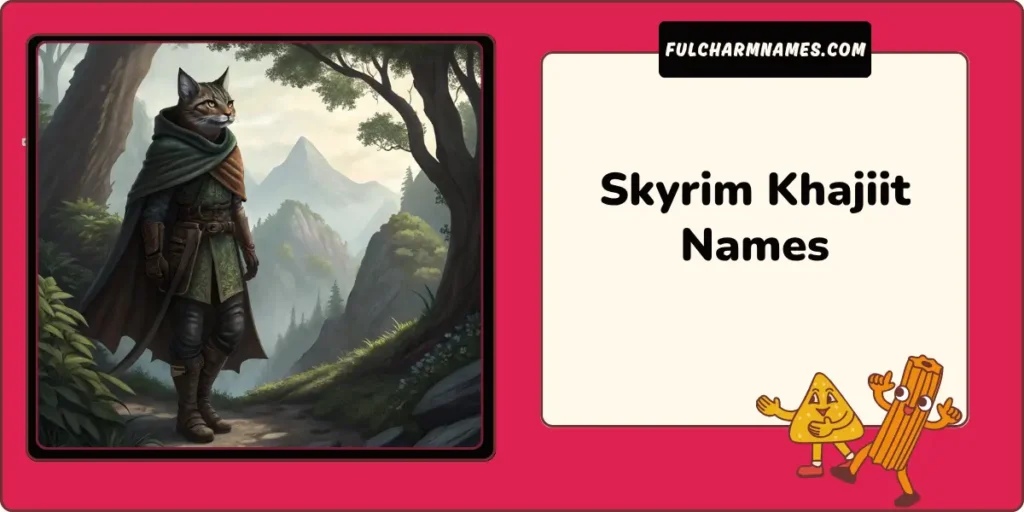
When I think of Skyrim Khajiit names, I picture traveling traders and caravan guards, like Kharjo, Ma’randru-jo, and Ra’zhinda, who bring the desert spirit of Elsweyr into the cold north.
Skyrim’s snowy landscape contrasts the warmth of these names, yet they still feel at home.
Their voices echo across the roads, offering insight, trade, or companionship. I always felt like these names made the Khajiit stand out even more among Nords and Bretons.
Creating Your Own Khajiit Name
To create a meaningful Khajiit name, follow these simple steps:
- Identify the character’s role: Is your Khajiit a fighter, rogue, merchant, or spiritual guide?
- Pick a fitting prefix: Use the chart above to align with age or function.
- Design the core name: Choose syllables that feel natural for the Khajiiti language.
- Add a suffix or keep it clean: Optional endings can reflect character traits or past roles.
- Test it out: Say it aloud. Does it sound Khajiit? Adjust if needed.
Example: A sneaky female pickpocket could be named Daro’Shavri. A strong male caravan guard might be Do’Makhar.
Common Naming Patterns For Role players
Players looking to name Khajiit in their games or stories can use these templates:
- [Prefix] + [Two-Syllable Root]
E.g., Ja’Ravo, M’Kari, S’Naza - [Prefix] + [Root] + [Suffix]
E.g., Do’Rashirr, Daro’Shaari - No prefix (rare)
Some outcasts or rebels may drop formal titles entirely. This can be a storytelling device.
Final Notes On Style And Voice
The best Khajiit names reflect thoughtfulness and context. They show respect for the in-game culture and allow writers or players to convey rich backgrounds without paragraphs of exposition. Names carry more than sound—they suggest life experience, social position, and even temperament.
Taking time to create an original Khajiit name helps add personality and consistency, especially in roleplaying environments or narrative-driven projects.
Answers To Popular Questions About Khajiit Names
Q1. Why do Khajiit names use prefixes like “Ja’”, “Do’”, or “Daro’”?
These prefixes help express a Khajiit’s stage in life, role, or personality. For example, “Ja’” is often used for a young male, while “Do’” is linked to warriors. The system allows names to carry immediate context without extra explanation.
Q2. Do Khajiit have family names or surnames?
Khajiit usually do not use family names in the way other races do. Their identity is based more on personal traits, accomplishments, and the lunar form they are born into. Some mention clans in formal settings, but not as part of their daily name.
Q3. Are there female equivalents to all male name prefixes?
Some prefixes are gender-specific, like “S’” for young females or “Daro’” for female thieves. Others, such as “Dar” and “Ri’,” are more neutral and used regardless of gender. The naming system is flexible, shaped by how the individual is seen.
Q4. Can a Khajiit’s name change over time?
Yes, a Khajiit may change their name prefix if their role or social standing shifts. A young fighter might go from “Ja’Rava” to “Do’Rava” with experience. These changes reflect personal growth and evolving relationships within Khajiiti society.
Q5. How important is the lunar phase in naming a Khajiit?
The moons Jone and Jode determine the Khajiit’s physical form at birth. While names aren’t directly assigned by lunar phase, their role and traits often match the form. This connection influences how they are named or titled in the community.
Q6. Do Khajiit in different regions of Elsweyr name themselves differently?
The core structure of Khajiit naming is used across Elsweyr, from Anequina to Pellitine. However, some dialect or cultural influences may affect root syllables or pronunciation. Despite these regional touches, the prefix-root system remains consistent.
Q7. Can non-Khajiit understand the meaning of Khajiit names?
To outsiders, Khajiit names may sound unfamiliar, but each carries meaning in their culture. Those who study Elsweyr’s traditions can learn what the names suggest about status or behavior. Within Khajiiti society, these names communicate clearly and intentionally.

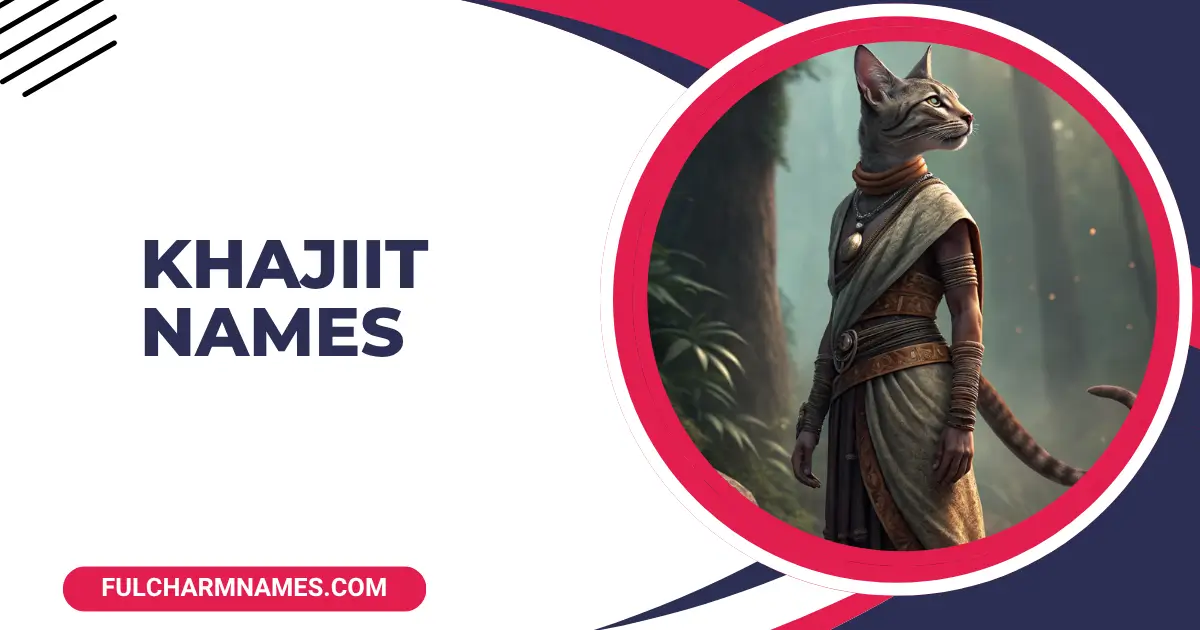
![100+ Fairy Names [Magical List Of Cute & Rare Picks] 9 Fairy Names](https://fulcharmnames.com/wp-content/uploads/2025/05/Fairy-Names.webp)

